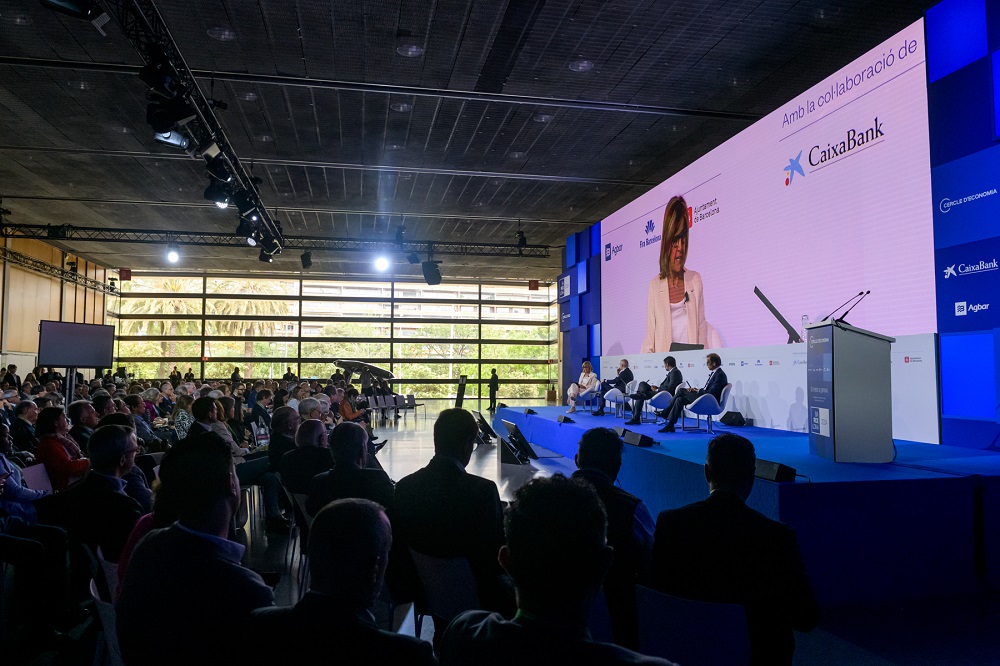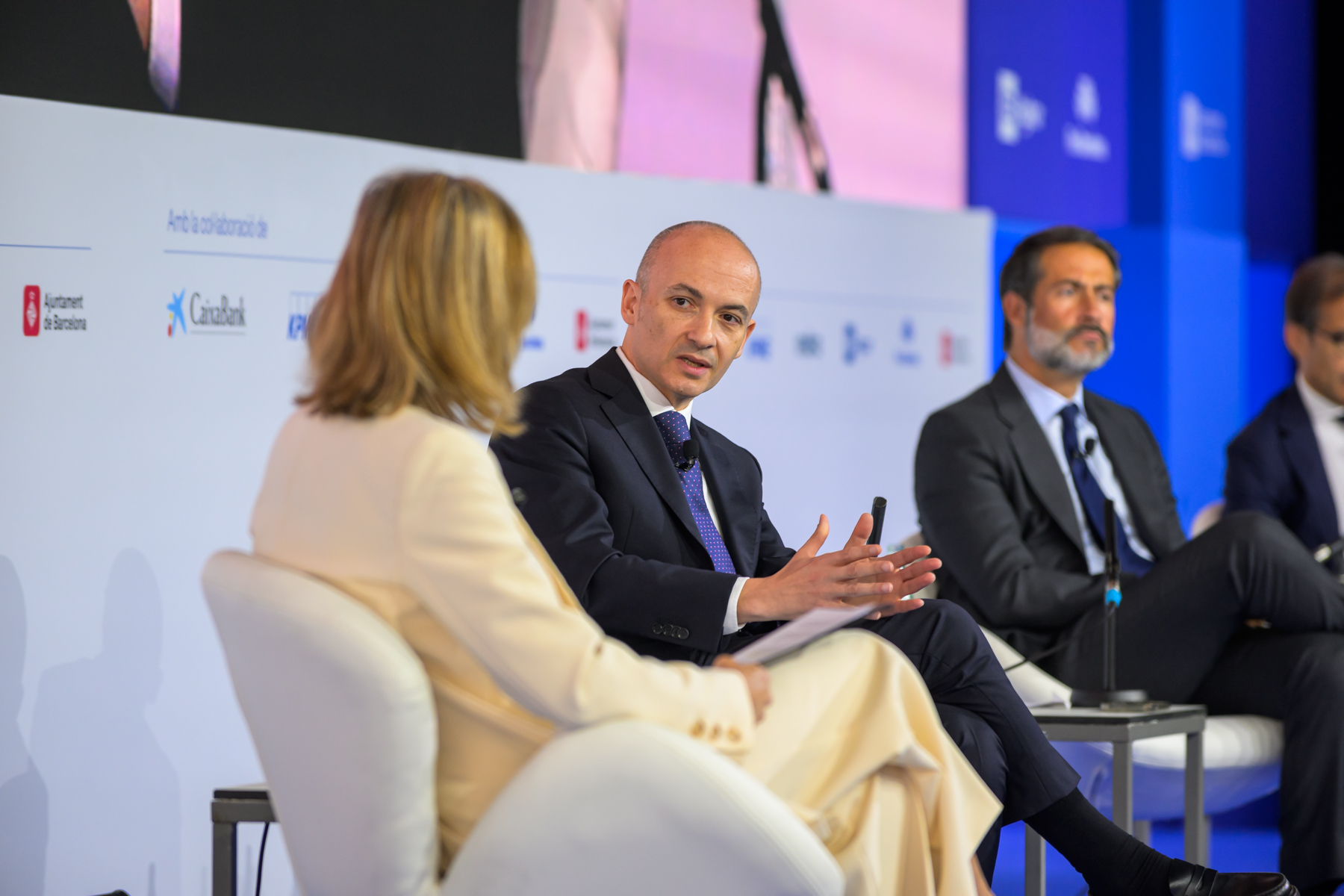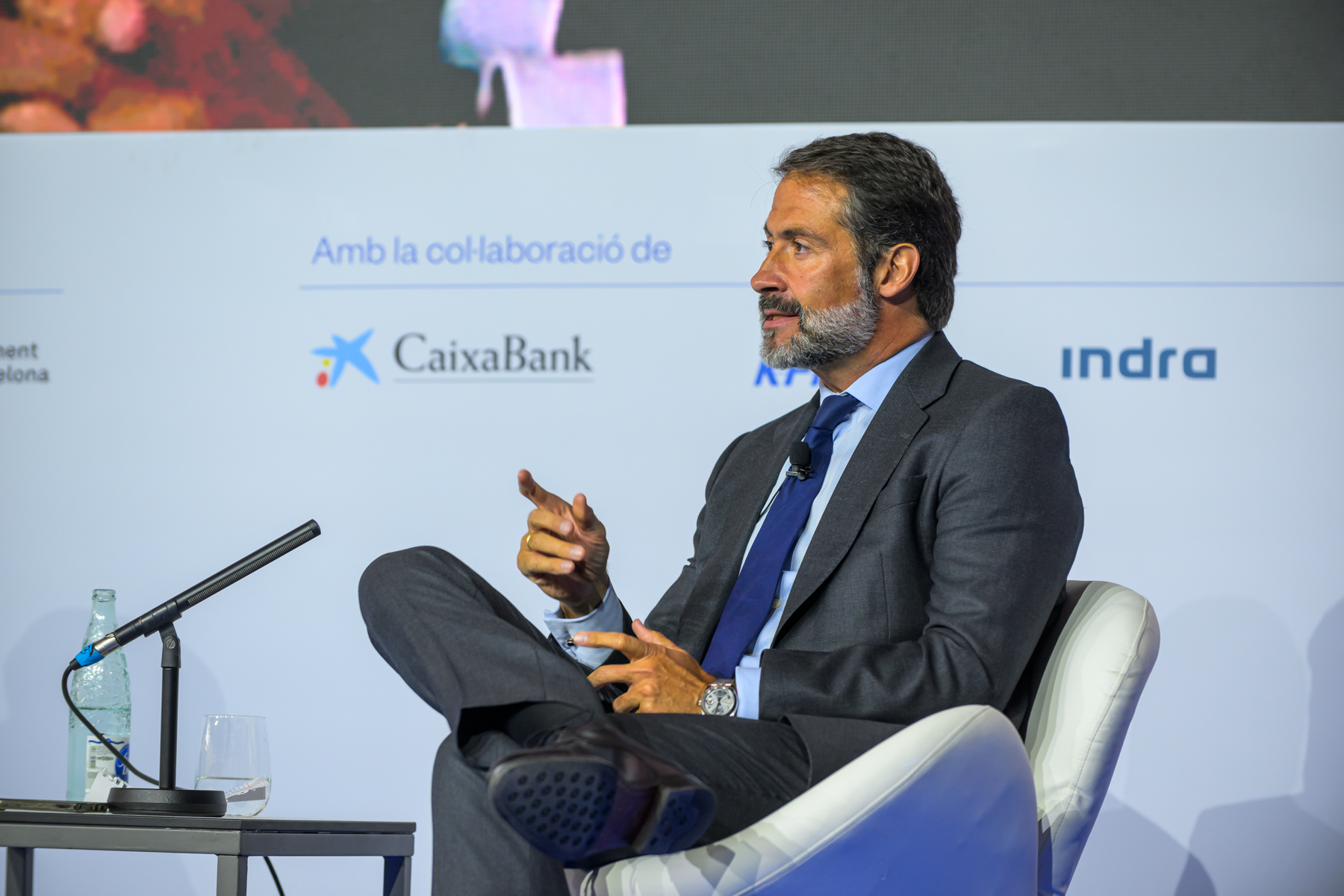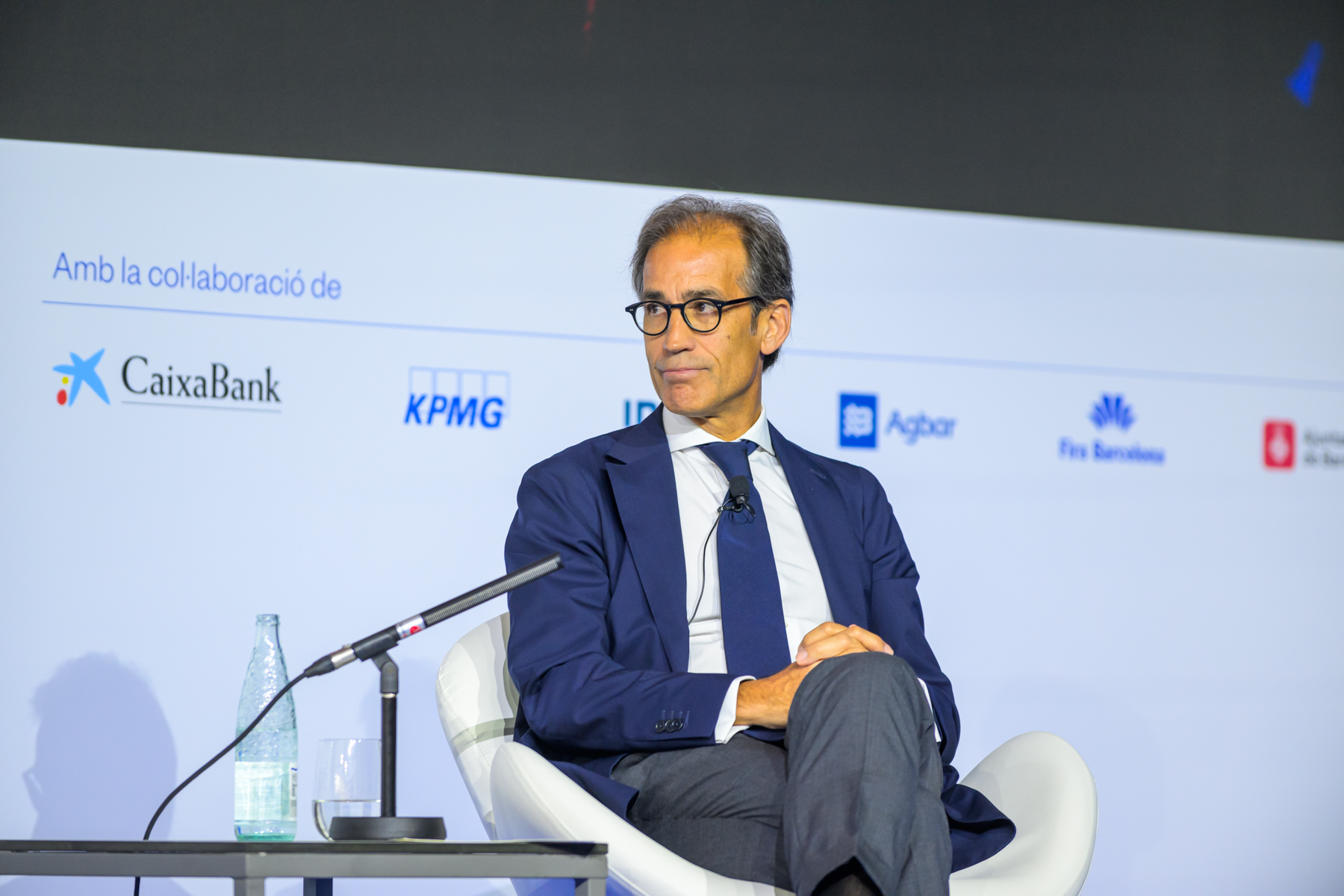The moderator Núria Cabutí, vice-president of Cercle d'Economia, valued the weight of the service sector in the Spanish economy and the predominance of SMEs, which create two thirds of the jobs in the European Union (EU). She indicated that the challenge for large Spanish and European companies in the global context is to increase competitiveness and productivity and said that GDP per capita in the United States grew by 60% between 1993 and 2022, while Europe grew by less than 30%. To improve productivity, she pointed out that it is necessary to accelerate innovation, disseminate new technologies and create an environment favourable to business growth. And he urged the speakers (Juanjo Cano, Óscar García Maceiras and Pau Relat) to discuss the importance of human capital, the recruitment and retention of talent and the need for continuous training in a digitalised world.

Talent management, company culture and diversity are key elements for the productivity and competitiveness of organizations. This was clear from the interventions of the participants in the round table. Óscar García Maceiras, CEO of Inditex, described the four pillars of the company's business model: creativity and design, continuous improvement of the customer experience, sustainability and people management. And he stressed the importance of being "excellent in the management of your people" so that the other pillars work. In 2023, Inditex promoted more than 12,000 employees and invested three million hours in training.
Pau Relat, Chairman of the Board of Directors of Fira de Barcelona, complemented this vision by highlighting talent as a differential element that allows Fira to be more productive and competitive: talent is the "only thing that cannot be copied", and referred to the Fira Talent Jove programme, which recruits and trains new generations.
Juanjo Cano, president of KPMG in Spain, addressed talent management in the context of post-pandemic hybrid work. "Talent is our priority, since what we sell is the knowledge of more than 6,000 people." The firm has implemented a hybrid model of smart working and face-to-face work to maintain flexibility and work-life balance, ensuring that face-to-face work remains a vital part of employee training and development.

Technology and artificial intelligence
The session addressed other crucial aspects related to the integration of technology and Artificial Intelligence (AI) in the business environment and its implications for productivity and talent management. These are "powerful tools" that can positively transform companies if they are implemented in an "ethical and responsible" way, with a clear focus on enhancing human talent and improving productivity without replacing the fundamental role of people in the decision-making process.
Cano pointed the relevance of AI in modern companies, stressing that "it is already in all of them" and stressed that its impact on productivity is undeniable. However, he pointed out that its implementation must be "responsible" and be accompanied by training and regulatory compliance. "Technology must be a tool for people" that considers ethics and responsibility for use.
García Maceiras stressed how technology has been key to the evolution of the company, both in the relationship with customers and in internal operations. In his case, AI acts as a "co-pilot" that helps in decision-making but does not replace human talent: "Technology is a tool available to our talent to fulfil our purpose."
Specific examples of the positive impact of technology on the institution's productivity were provided by Pau Relat, explaining how the creation of a digital twin of the Gran Vía venue has made it possible to reduce the assembly and disassembly times of large events such as the Mobile World Congress, which has increased the productive capacity of the space. Technology complements the face-to-face activity of trade fairs, improves continuous interaction with customers and visitors and increases the attractiveness of face-to-face events.

Sustainability and productivity
Sustainability and productivity in today's business context are two intrinsically related concepts. Óscar García Maceiras pointed out that "sustainability is one of the four pillars of our business model" and highlighted Inditex's adherence to the United Nations Global Compact more than 20 years ago.
In fact, Inditex has committed to ensuring that, by 2030, 100% of raw materials will be more sustainable, with 25% of new generation fibres not yet existing on an industrial scale: "Sustainability is also a driver for productivity; it can be cost-effective and not necessarily more expensive." For his part, Pau Relat stressed that "productivity that is not sustainable, will not be", and Juanjo Cano, president of KPMG in Spain, pointed out that companies must integrate ESG (environmental, social and governance) principles into their strategies.

Enhancing talent
The three speakers agreed on the need for public-private collaboration and between companies of different sizes to improve productivity. García Maceiras stressed that European fashion is an example of world leadership thanks to collaboration at different levels, while Relat and Cano underlined the importance of talent, efficiency and corporate culture to achieve a successful and productive model. In the words of Maceiras, "a good corporate culture enhances talent, a bad corporate culture kills talent".
They concluded that sustainability and productivity are not opposing concepts, but that "they can and should go hand in hand". They assured that Spanish companies are well prepared to compete globally, if they continue to invest in talent, innovation and sustainability, with a long-term vision and effective collaboration between all the sectors involved.